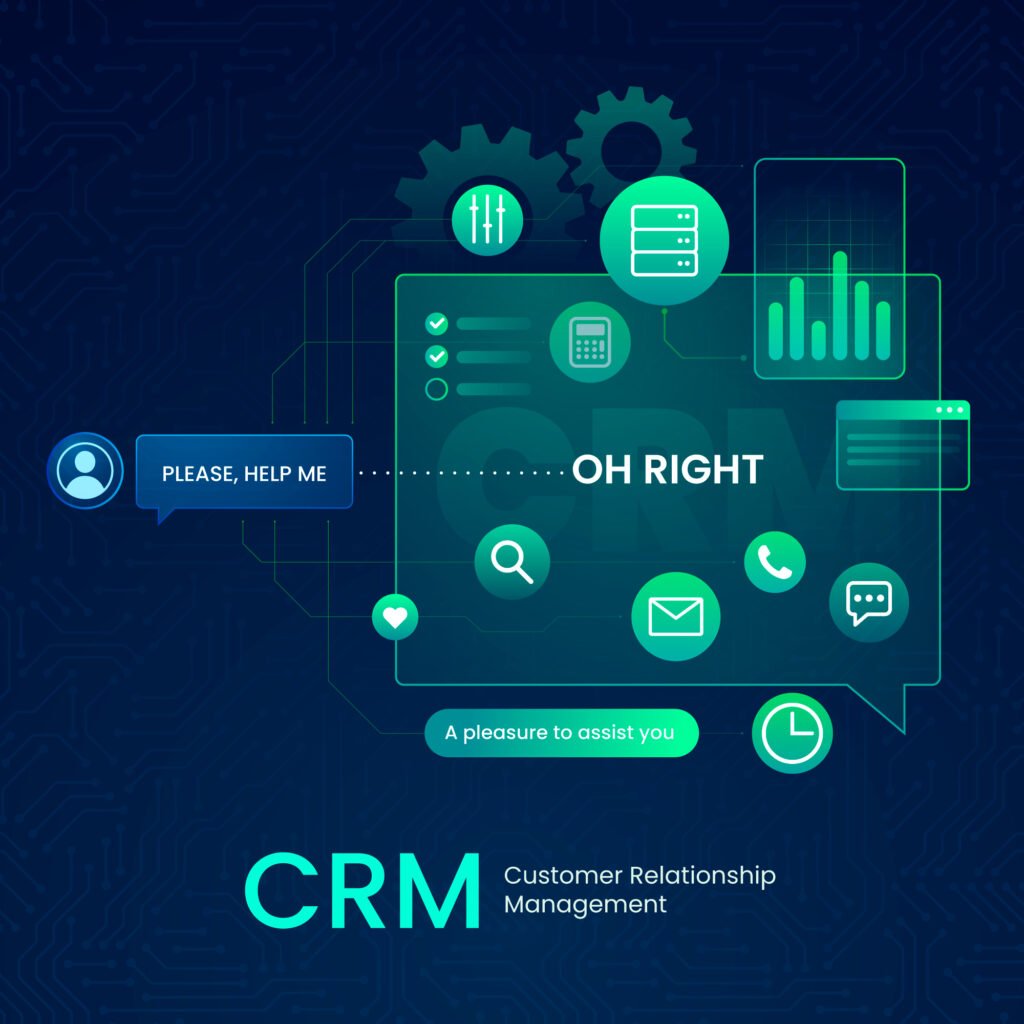In today’s competitive business landscape, customer relationship management (CRM) software has become essential for small businesses aiming to streamline operations and enhance customer satisfaction. By leveraging IT services to implement custom CRM software, small businesses can unlock numerous benefits that drive growth and efficiency. Here are the top 10 advantages of integrating CRM software into your business operations.
Why CRM Software is Crucial for Small Businesses
For small businesses, managing customer relationships effectively can be a daunting task. Limited resources and time constraints often make it challenging to keep track of customer interactions, sales processes, and marketing efforts. This is where CRM software steps in as a game-changer. It not only helps in organizing and managing customer data but also provides valuable insights that can lead to more informed decision-making. Implementing a CRM system can be the catalyst that transforms how small businesses operate and engage with their customers.
1. Enhanced Customer Relationships
A CRM system provides a comprehensive view of customer interactions, allowing businesses to understand their needs and preferences better. This insight helps in building stronger, more personalized relationships with customers, leading to increased loyalty and retention. With all customer data centralized, businesses can tailor their communication and services to meet individual customer needs more effectively.
2. Improved Data Management
CRM software consolidates customer information into a single database, making it easier to manage and access data. This centralized system reduces errors, ensures data accuracy, and enhances the overall efficiency of your business operations. By having a single source of truth, small businesses can avoid the pitfalls of fragmented data and improve their decision-making processes.
3. Streamlined Communication
With CRM software, communication with customers is more organized and efficient. Automated email campaigns, follow-up reminders, and personalized messages ensure that no customer is overlooked, fostering better engagement and satisfaction. The ability to track all interactions also helps in providing timely and relevant responses, enhancing the overall customer experience.
4. Increased Sales and Revenue
By tracking customer interactions and sales data, CRM software helps identify opportunities for upselling and cross-selling. This targeted approach increases sales efficiency and boosts revenue, helping small businesses grow their bottom line. Sales teams can also prioritize leads more effectively, ensuring that the most promising opportunities are pursued.
5. Better Customer Service
A CRM system enables businesses to provide faster and more effective customer service. By having access to complete customer histories, support teams can resolve issues promptly and accurately, improving overall customer satisfaction. This leads to higher customer retention rates and more positive reviews and referrals.
6. Enhanced Collaboration
CRM software facilitates better collaboration among team members by providing a shared platform for customer data. This ensures that everyone is on the same page, leading to more coordinated efforts and improved business outcomes. Sales, marketing, and support teams can work together more seamlessly, enhancing overall productivity.
7. Custom CRM Software Solutions
Investing in Custom CRM Software tailored to your specific business needs can significantly enhance its effectiveness. Custom solutions ensure that the software aligns perfectly with your workflows, offering features and functionalities that address your unique challenges and requirements. This level of customization can lead to greater user adoption and more impactful results.
8. Advanced Reporting and Analytics
CRM systems come with powerful reporting and analytics tools that provide valuable insights into business performance. These tools help small businesses track key metrics, identify trends, and make informed decisions to drive growth and improvement. By analyzing data on customer behavior, sales performance, and marketing effectiveness, businesses can refine their strategies and achieve better outcomes.
9. Scalability and Flexibility
As your business grows, your CRM software can scale with you. Most CRM solutions offer flexible plans and features that can be upgraded as needed, ensuring that your system continues to meet your evolving needs without disruption. This scalability allows small businesses to invest in a solution that supports their growth trajectory.
10. Competitive Advantage
Implementing a robust CRM system gives small businesses a competitive edge. By leveraging IT services to optimize customer relationships and streamline operations, businesses can outperform competitors and achieve long-term success. A well-implemented CRM system can differentiate a business in the marketplace by providing superior customer service and more effective sales and marketing efforts.
Conclusion
The implementation of CRM software offers small businesses a multitude of benefits, from improved customer relationships and data management to increased sales and enhanced collaboration. By choosing custom CRM software tailored to their specific needs, businesses can maximize these advantages and ensure sustainable growth. Embrace the power of CRM and watch your small business thrive in today’s competitive market.
For expert IT services and custom CRM solutions, reach out to a leading IT solutions company. Enhance your customer relationship management and take it to the next level.



BENEFITS OF TOUCHPOINT VMS:
Embrace the Ease of QR Check-ins & Check-outs
Appointments & Approvals Made Effortless with TouchPoint
Experience the Seamless Integration with Access Control
Authentication Simplified: SSO and ADFS
BENEFITS OF TOUCHPOINT CLMS:
On-boarding and Off-boarding
Approval Workflow
Time and Attendance
Contractor Portal
Compliance
Document Management
BENEFITS OF TOUCHPOINT MGP:
Managing Different Types of Passes
Returnable and Non-Returnable Passes
Approval Workflow System
ERP Integration
Vehicle Gate Pass
Reminders and Escalation System
BENEFITS OF TOUCHPOINT PTW:
Customized Work Permit Management Solutions
Seamless Vendor Collaboration
Precise Check-In/Check-Out Management
Streamlined Audits and Incident Resolution